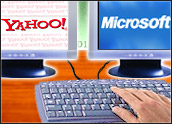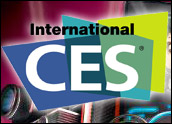
Microsoft may have big things in store for the world of tablet computers. However, anyone attending CEO Steve Baller’s keynote address at the Consumer Electronics Show Wednesday hoping to see a parade of upcoming Windows tablet devices likely left disappointed.
Instead of lining up an array of almost-to-market tablets for the audience to ogle Wednesday, Ballmer focused on Microsoft products relating to televisions, smartphones and PCs, touting past and future developments in its Xbox, Windows Phone 7 and Windows platforms.
However, a Windows 8 development that the company revealed during the keynote may hint at the company’s longer-term goals in the tablet space.
How Soon Is Now?
A New York Times article from last month hinted that Microsoft would show an array of tablets running its software at CES 2011. However, during the opening presentation, company representatives referred to just one of the many devices on its stage as a “tablet” — a machine made by Asus — and it received only a few minutes of attention.
This was only the opening evening of CES, though, and it’s possible the company plans to show conference-goers a wider array of tablets at its booth when the show opens in earnest Thursday.
Though it showed few tablet products at its prime-time presentation Wednesday — the Asus as well as a Samsung device that could arguably be called a tablet — upcoming developments in the still-in-progress Windows 8 operating system could pave the way for easier support of that OS on tablet devices.
Windows 8 will support a wider array of processor architectures, from familiars like AMD and Intel as well as ARM-based chips and system-on-a-chip architectures. The goal, said Ballmer, is “to bring the widest possible range of form factors to the market.”
Other chip partners with products in development include Nvidia, Qualcomm and Texas Instruments.
From Deep Within the Lab
Supporting a wider array of architectures would bring added flexibility to the Windows operating system, allowing it to more practically run on smaller devices where mobility and energy conservation are prime factors. Many tablets and smartphones, for example, run on ARM-based chips.
To demo the capability, Ballmer and Mike Angiulo, VP of Windows Planning, Hardware and PC Ecosystem, revealed a set of naked, still-in-development PCs running a test version of Windows 8 (which sported a Windows 7 user interface). The ARM-based systems from companies like TI and Qualcomm were able to run Windows software, show HD video and interact with a printer, all natively via Windows.
By opening itself to new architectures, Windows could more easily make the jump to smaller, more mobile devices like tablets.
Windows 8, however, is likely still a long way off. At CES 2009, Windows 7 was polished enough for extensive demonstrations, and the final product reached stores nearly a year later.
Games and Phones
Microsoft also devoted stage time to its Xbox 360 platform and new developments in store for its motion-sensing accessory, Kinect.
“Xbox Live, Xbox 360 and Kinect have made 2010 the biggest year in Xbox history,” Ballmer told the audience.
Microsoft intends to make Kinect a primary method of controlling more than just Xbox 360 games. It already has the ability to control certain Xbox media functions, and this spring it will also be made compatible with the Xbox’s Netflix and Hulu Plus portals.
The company also previewed Avatar Kinect, a way of interacting with friends via Kinect’s motion-sensing features using one’s Xbox Live avatar in a variety of virtual environments.
2011 marked Windows Phone 7’s first CES as a fully formed product, and Microsoft provided an update on the nascent platform’s status. It boasted an app store of 5,500 titles and the support of 20,000 developers.
Soon-to-come updates include the ability to cut and paste as well as “significant” performance improvements in starting and switching applications.
In the first half of 2011, Windows Phone 7 handsets will be made available on Sprint and Verizon.





















































